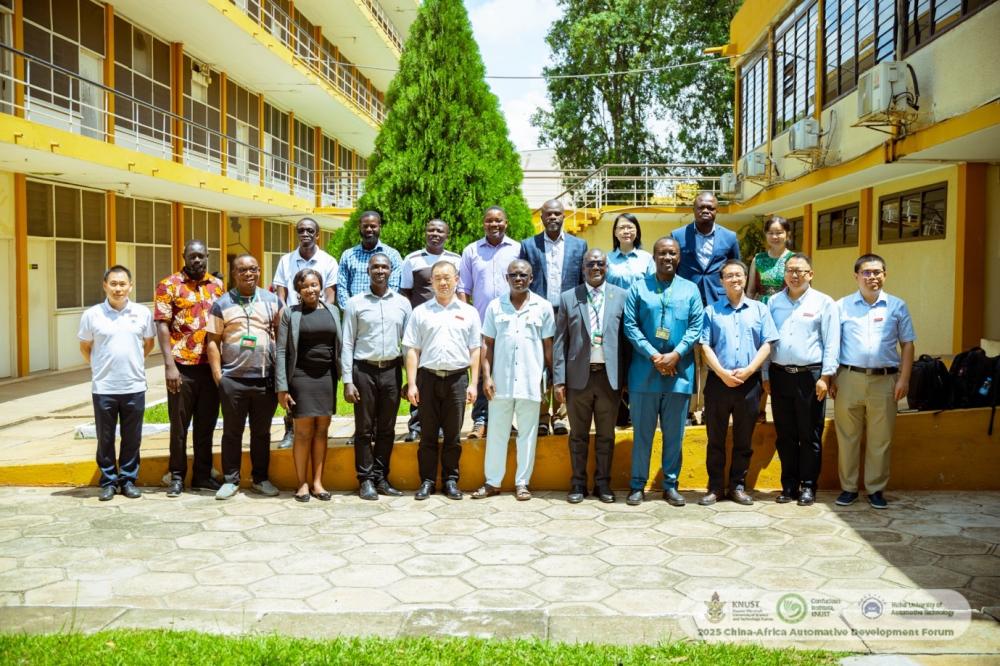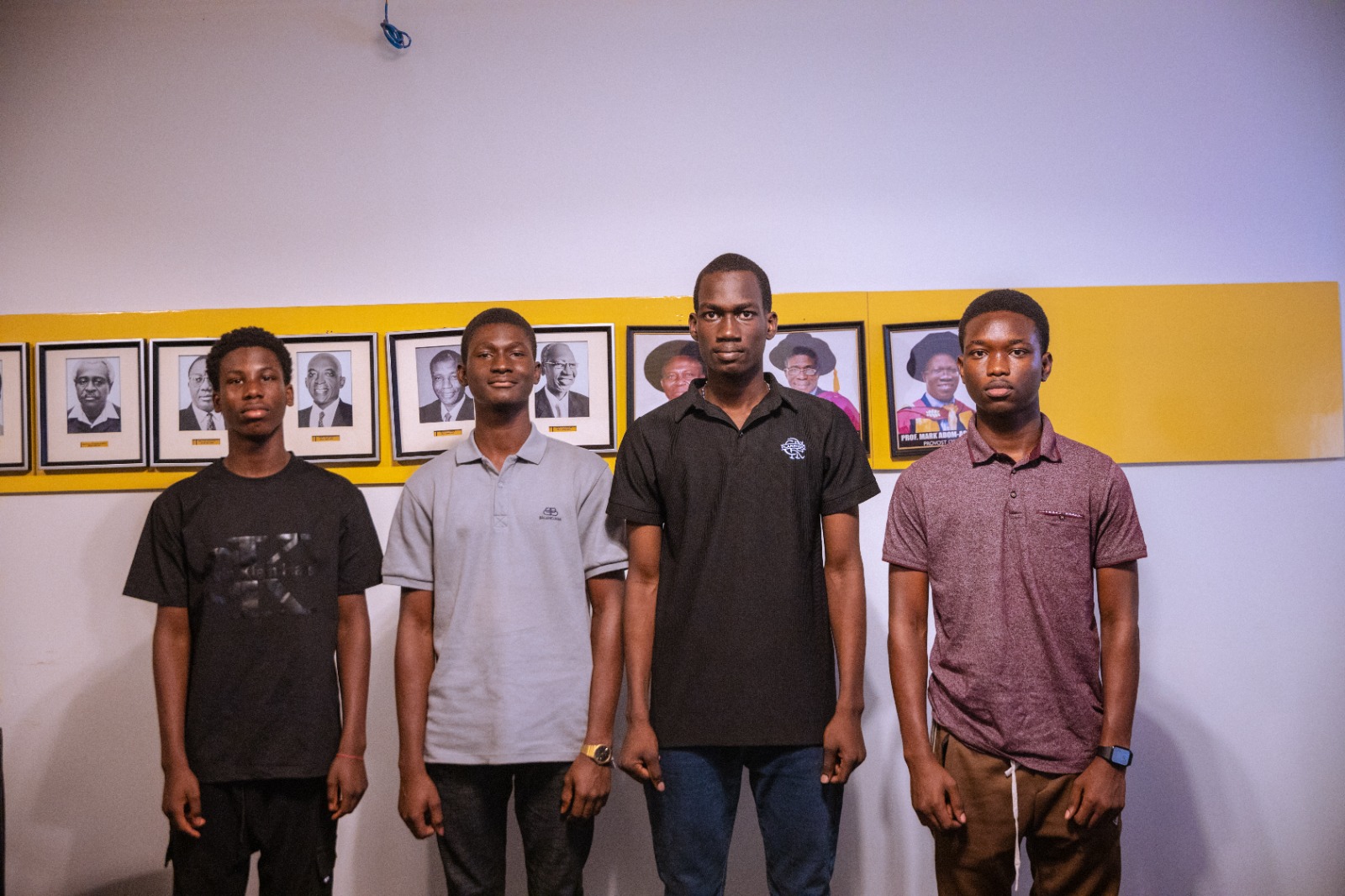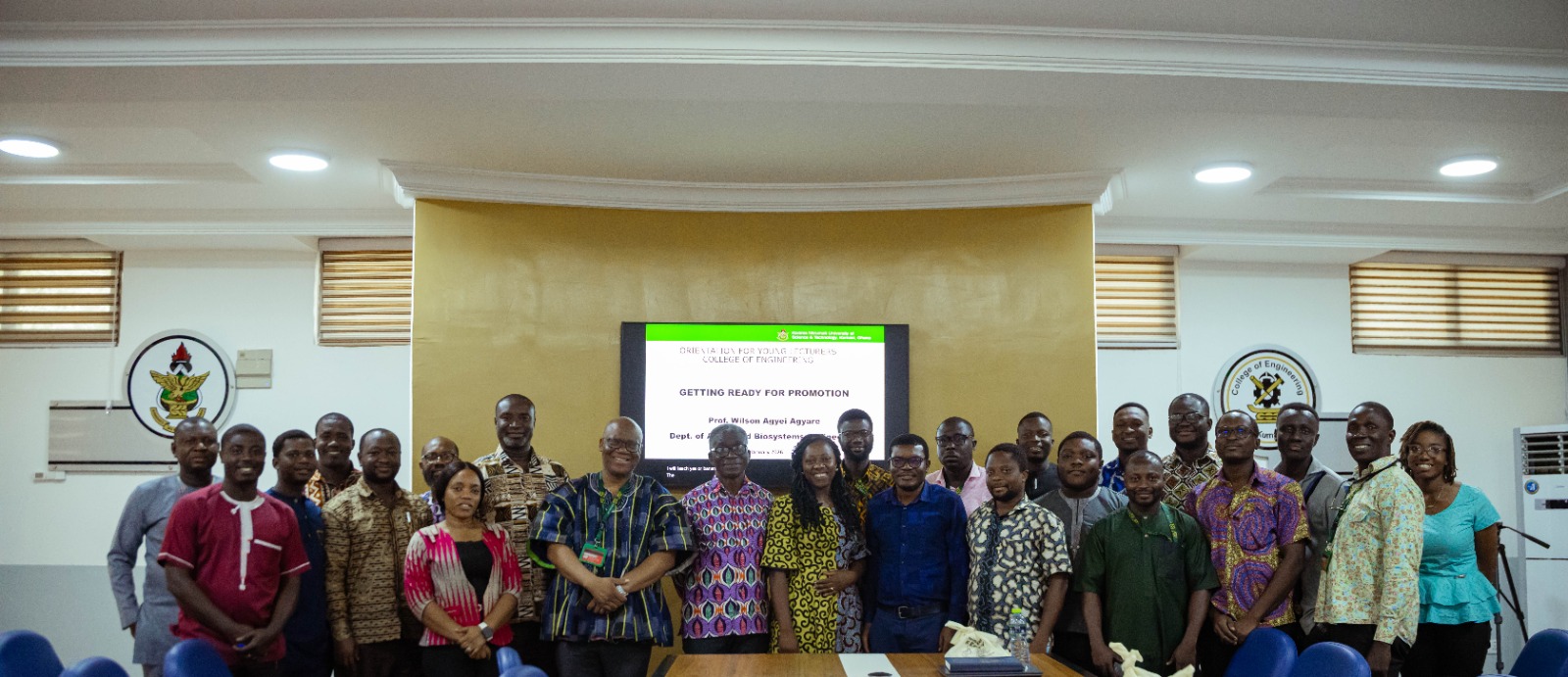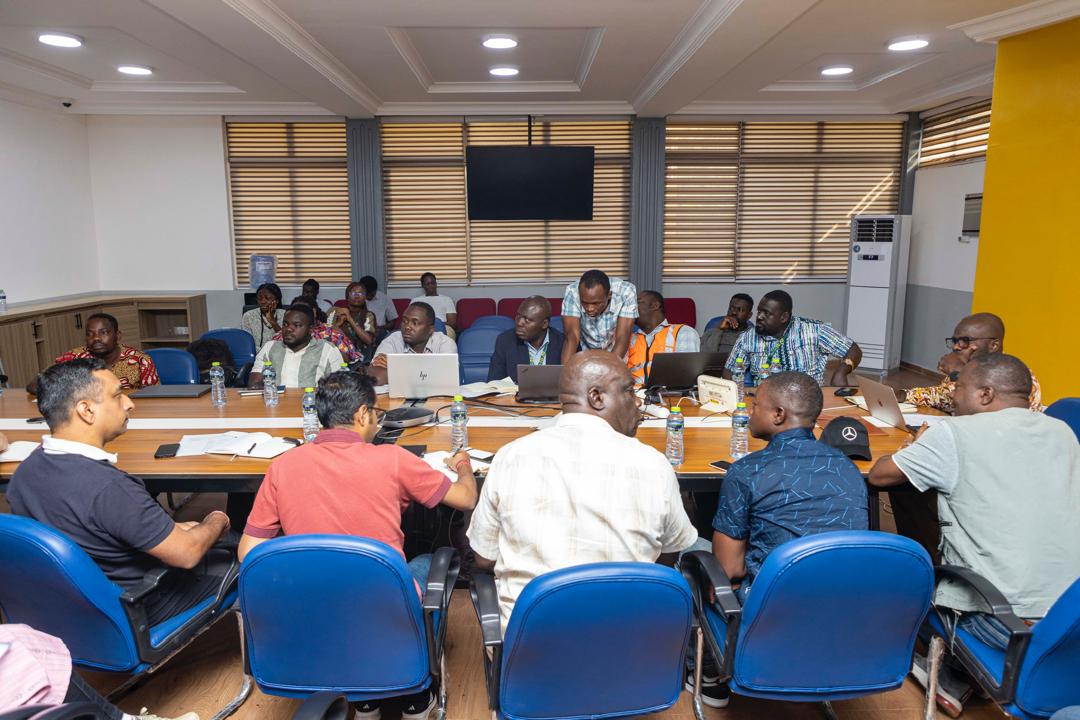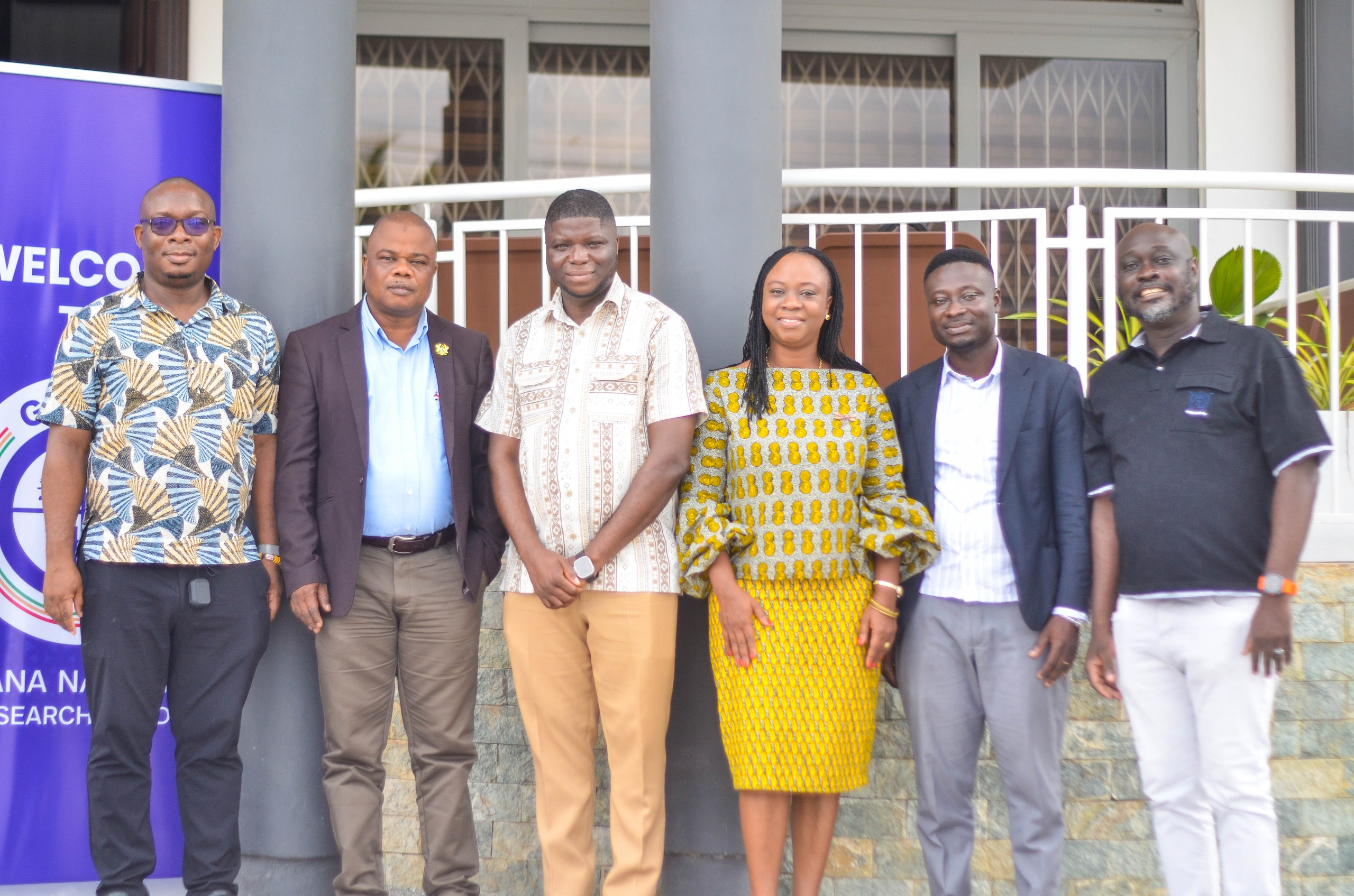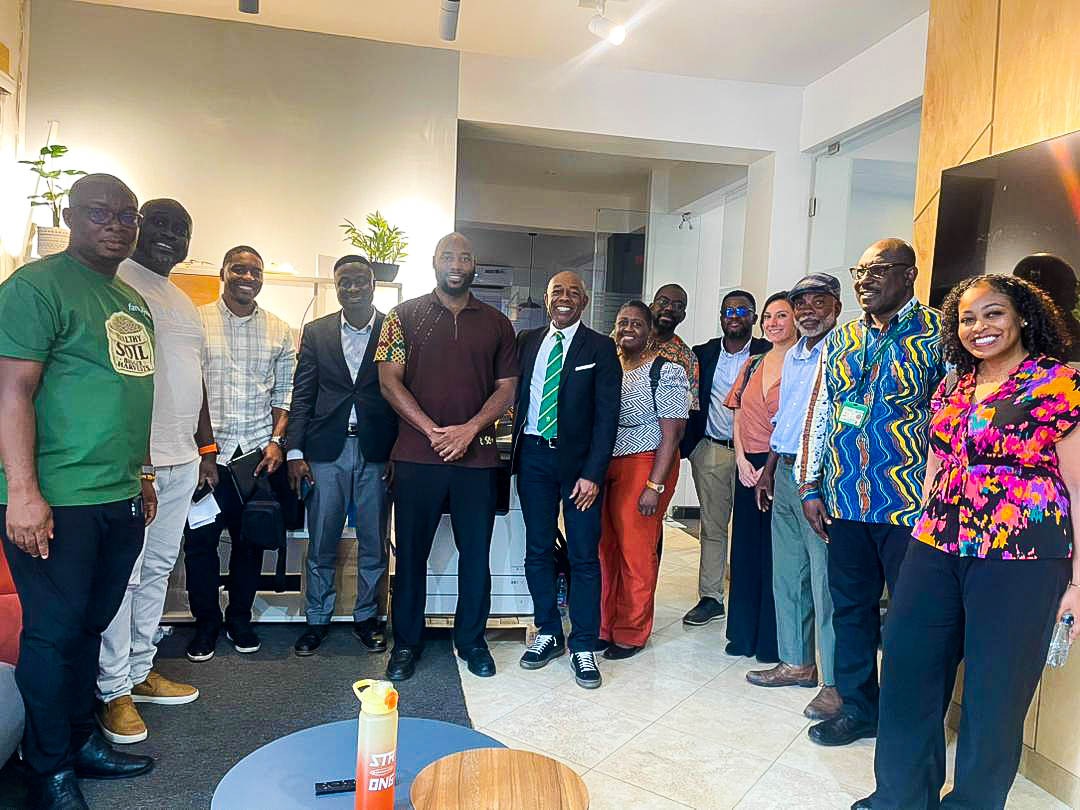In a significant step toward strengthening international academic ties, a delegation from Hubei University of Automotive Technology (HUAT), led by President Wang Xiao, met with faculty and leadership of the KNUST College of Engineering (CoE) to discuss the establishment of an International Joint Research Centre for Advanced Automotive Energy Storage Materials and Systems. The meeting also served as a precursor to the 2025 China-Africa Automotive Development Forum, themed "Intelligent Manufacturing of Lightweight Electric Vehicles."
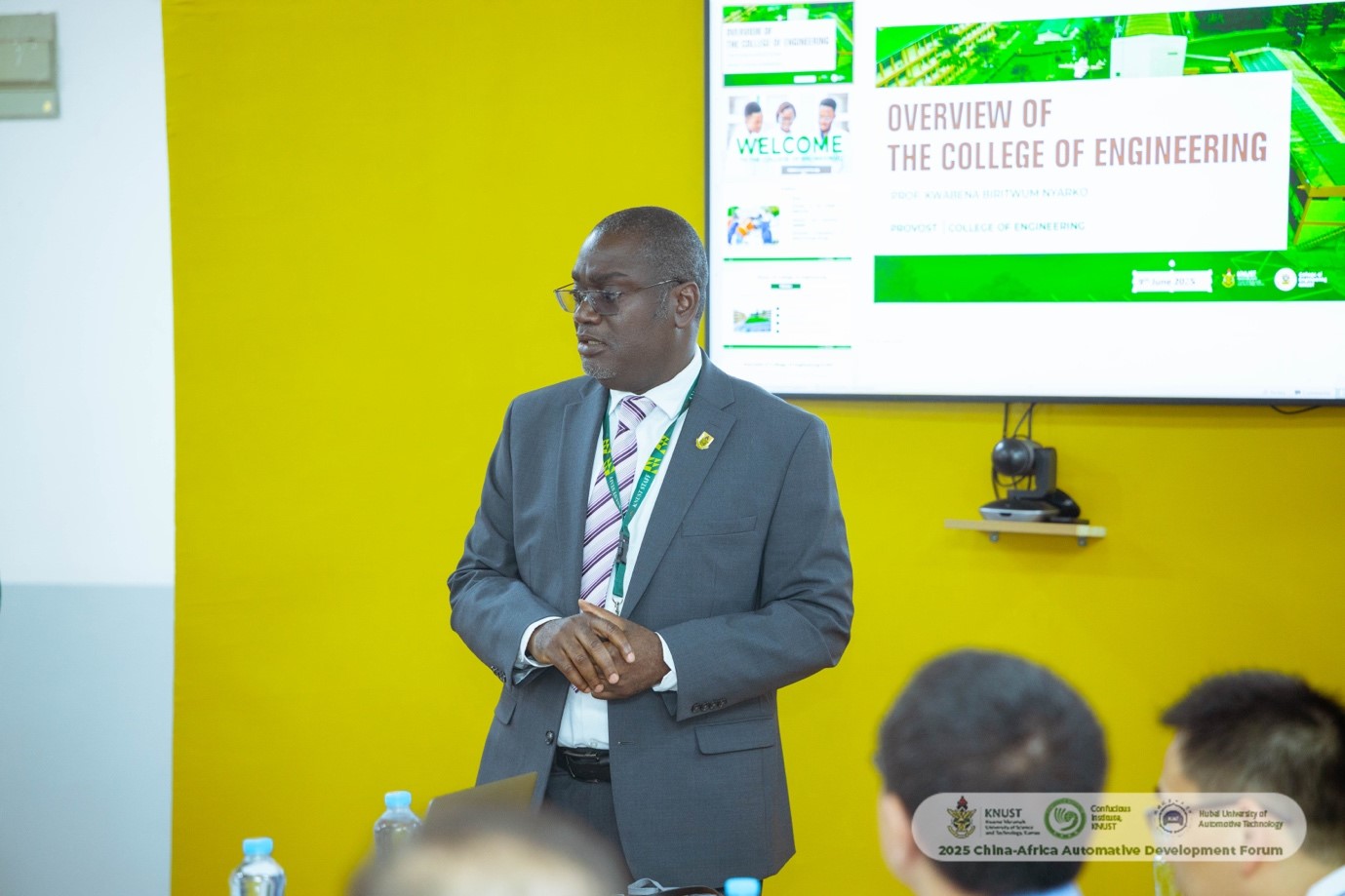
Prof. Kwabena Biritwum Nyarko, Provost of the KNUST College of Engineering, welcomed the HUAT delegation and highlighted the College’s commitment to becoming Africa’s leading engineering institution. He mentioned the College’s role in Ghana’s renewable energy sector through the Brew Hammond Energy Centre, which spearheads the Ghana Renewable Energy Masterplan. Additionally, he noted the strong industry partnerships with Nissan Ghana, Toyota Ghana, and other key players in the automotive sector.
Prof. Nyarko outlined the next steps for collaboration, including:
- Drafting a concept note for the joint research centre
- Appointing lead coordinators and forming technical working groups
- Developing faculty and student exchange programs
- Identifying joint research funding opportunities
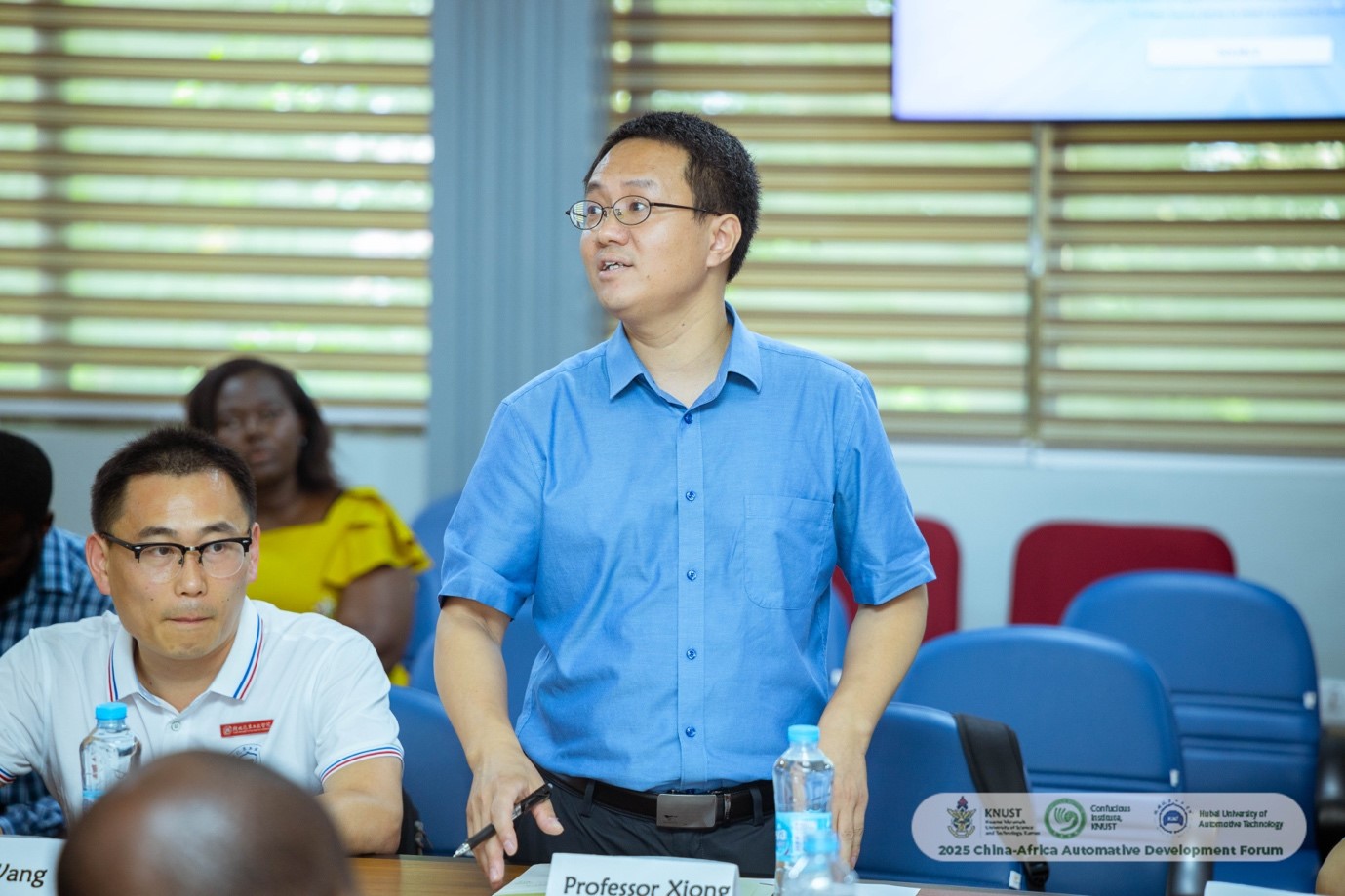
Prof. Xiong Yongchen, Dean of the School of Optic-Electronic Engineering, New Energy and Future Automotive Technology at HUAT, presented the university’s research strengths. He mentioned ultra-high-performance battery materials, green manufacturing technologies for battery materials and intelligent manufacturing systems for electric vehicle (EV) power supplies as key research areas.
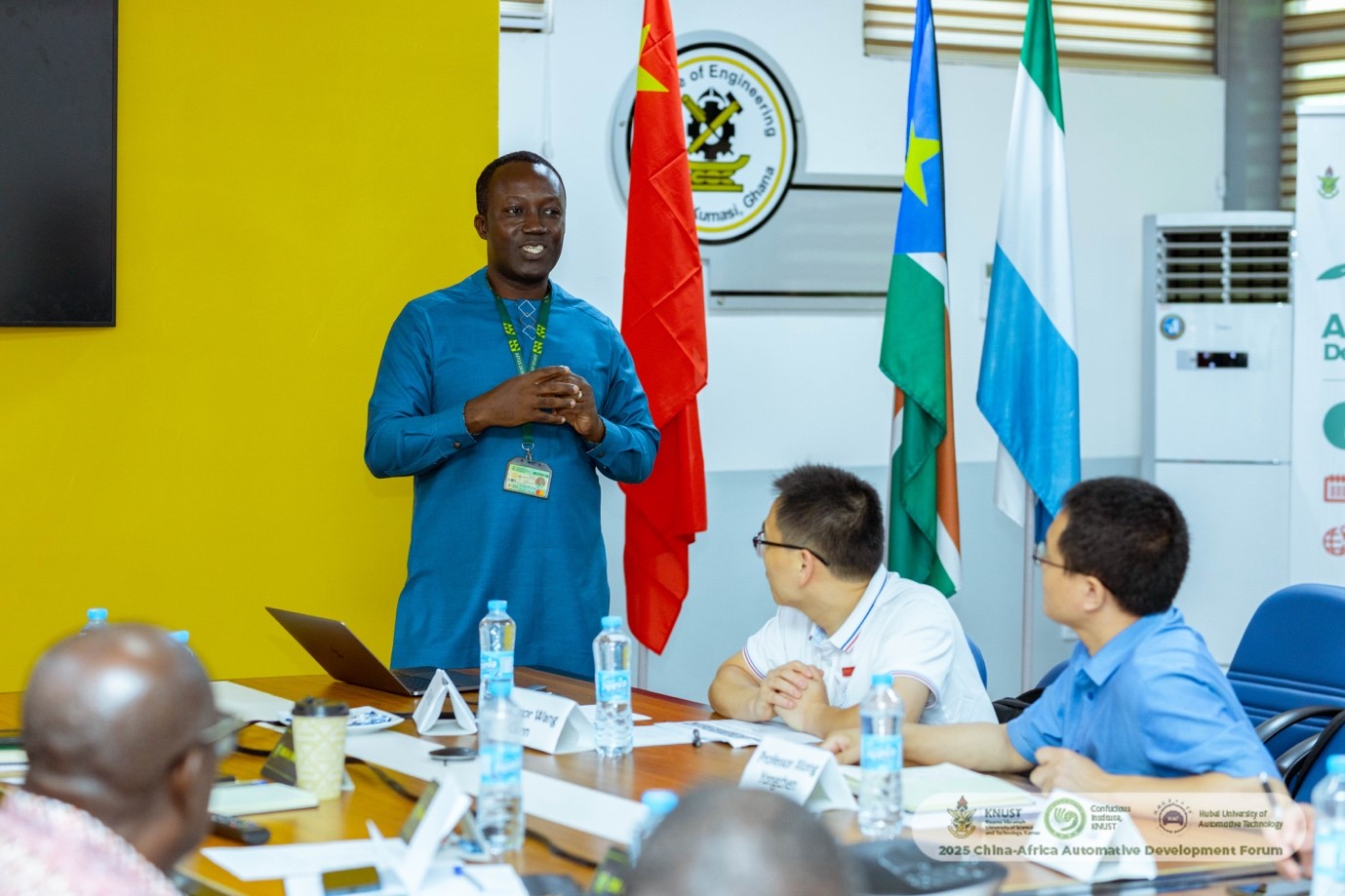
Prof. Daniel Duah, Dean of International Programmes Office (IPO) at KNUST, expressed enthusiasm for deepening the partnership, stating, “HUAT and KNUST have a strong relationship, and this is just the beginning. Through joint research labs and academic exchanges, we can achieve breakthroughs in automotive innovation.”
Key discussion points included:
- A proposed MoU for training in electric vehicles (EVs)
- Collaboration with Chinese automotive industries for research commercialisation
- Opportunities for KNUST to serve as a regional hub for automotive technology
- Potential for 10 KNUST postgraduate students to engage in joint research with HUAT
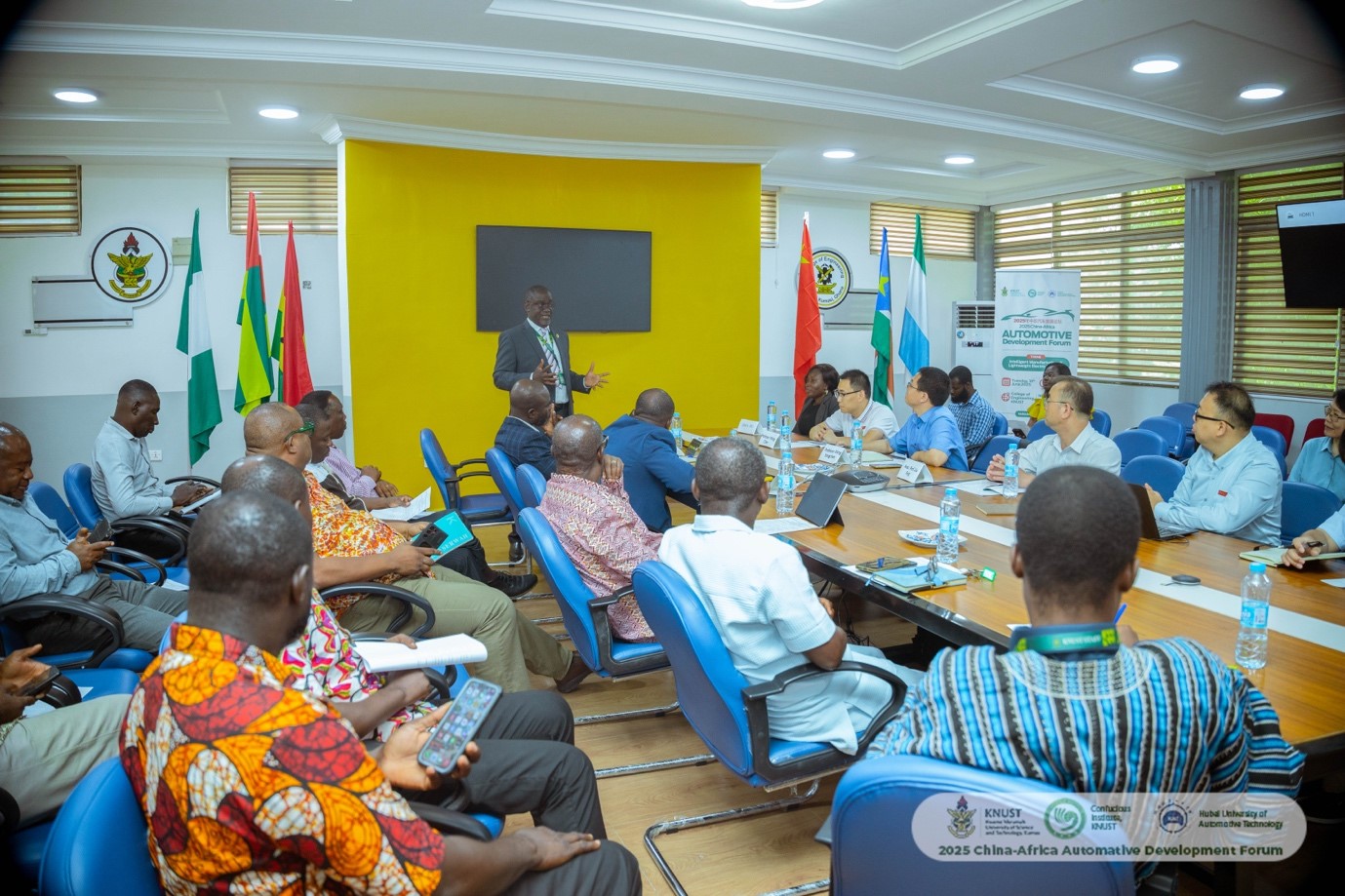
The meeting concluded with an exchange of contacts and a mutual commitment to advancing automotive research and innovation in Ghana and China.


